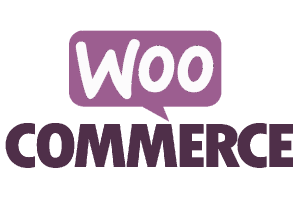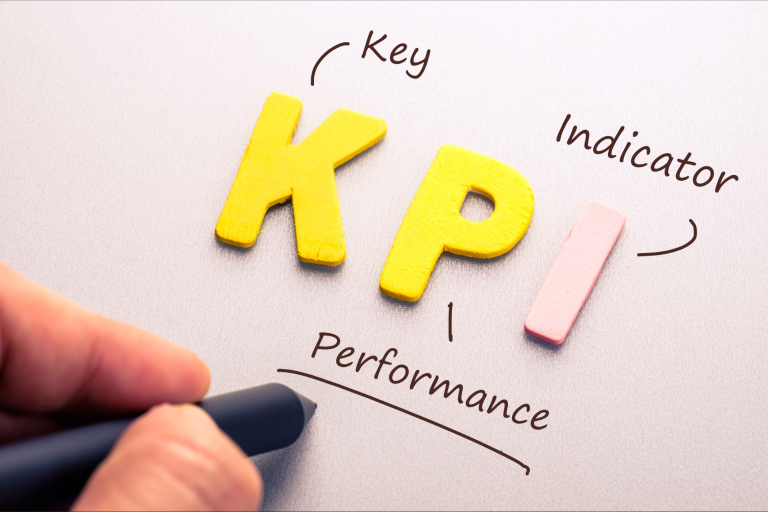
Best E-commerce Platforms for SEO in 2024 – Comparison
If you’re starting an online store, the first step is to choose an ecommerce platform to sell your products and run your business. There are many ecommerce platforms out there these days: Shopify, WooCommerce, BigCommerce, and Magento to name a few. But which of these platforms is best for your business? And could the ecommerce platform you choose affect the success of your online store?
The short answer is, yes.
Ecommerce platforms are not made equal. They have different features and some are better suited for smaller businesses while others have what it takes to make a brand explode online and scale successfully.
One of the most important features to look for when choosing an ecommerce platform is how well they integrate SEO. An ecommerce platform that’s built with SEO in mind allows your store to attract customers, sell products, and succeed online. An ecommerce platform that includes only basic SEO tools could result in low or no traffic, few purchases, and little success for your brand.
In this article, we’ve ranked the best ecommerce platforms for SEO. After carefully testing and comparing results from the most popular ecommerce platforms on the market, we’ve ranked them based on specific criteria that we think is crucial for the success of your online business.
Here’s what we’ll cover:
- Why SEO is important when choosing an ecommerce platform
- How your ecommerce platform can impact SEO
- Features of the best SEO ecommerce platforms
- The best ecommerce platforms for SEO, ranked
- Migrating between ecommerce platforms
- Things to consider when choosing an ecommerce platform
- How to choose the best ecommerce platform
| BEST FOR SMALL BUSINESSES | THE CHEAPEST ONE | ||||||||
 |
 |
 |
 |
 |
 |
 |
 |
 |
|
| Type | SaaS | Open Source | Open Source | Open Source | SaaS | SaaS | SaaS | SaaS | SaaS |
| Friendly URLs |
|
|
|
|
|
|
|
|
|
| Speed | |||||||||
| Space for files and how much | unimited | depends | depends | depends | depends on the plan | unimited | depends on the plan | unimited | |
| Clean code |
|
|
|
|
|
|
|
|
|
| Payment systems | wide | wide | wide | wide | wide | wide | wide | wide | Leading providers + bring your own |
| Language versions |
|
|
|
|
|
|
|
|
|
| Price | 29 AU$/m | PrestaShop is open-source software, which means that the basic version is available for free. | Magento Community Edition is free; Magento Commerce (Enterprise) is paid and its cost depends on business needs. | WooCommerce is free, costs can come from additional plugins, themes and hosting. | 109 AU$/m | 29.95 AU$/m | 15 AU$/m | 18 AU$ per month | Starting from $23USD/m |
| Savety |
|
|
|
|
|
|
|
|
|
| Number of plugins | Over 8,000 apps and plug-ins available in the Shopify App Store | Thousands of free and paid modules available on the PrestaShop marketplace. | Thousands of free and paid modules available on the marketplace. | Thousands of free and paid modules available on the marketplace. | 95 | Wide choice of free app options | The Wix App Market offers hundreds of apps and plug-ins | Access to various apps and tools | Dozens of apps |
| Easy to set up | |||||||||
| Support | |||||||||
| Backup |
|
|
|
|
|
|
|
|
Partial |
| API |
|
|
|
|
|
|
|
|
|
| Zapier |
|
|
|
|
|
|
|
|
|
| Free test |
|
|
|
|
|
|
|
|
|
| Custom Navigation Links |
|
|
|
|
|
|
|
|
|
| Custom Page Titles |
|
|
|
|
|
|
|
|
|
| Custom Page URLs |
|
|
|
|
|
|
|
|
|
| Custom Meta Descriptions |
|
|
|
|
|
|
|
|
|
| Custom Image ALT Tags |
|
|
|
|
|
|
|
|
|
| Custom H1 Headings |
|
|
|
|
|
|
|
|
|
| Canonical URLs |
|
|
|
|
|
|
|
|
|
| Integrated Blogging Features |
|
|
|
|
|
|
|
|
|
| Social Sharing buttons |
|
|
|
|
|
|
|
|
|
| Auto XML Sitemaps |
|
|
|
|
|
|
|
|
|
| Custom domain names |
|
|
|
|
|
|
|
|
|
| Custom IP addresses |
|
|
|
|
|
|
|
|
|
| 301 redirects |
|
|
|
|
|
|
|
|
|
| Robots Noindex Capabilities |
|
|
|
|
|
|
|
|
|
Why is SEO important when choosing an ecommerce platform?
Let’s start with the basics: why do you need to think about SEO when choosing an ecommerce platform?
Search engine optimization (SEO) is one of the most vital considerations when building an online brand. For ecommerce specifically, SEO ensures your products are seen by the right audience and that your website functions smoothly enough to encourage them to make purchases and keep coming back for more.
A properly SEO optimized ecommerce store will:
- Attract organic traffic
- Ensure your products show up effectively
- Improve your website’s reputation
- Ensure a good user experience
- Increase your conversions
- Rank on search engine results pages (SERPs).
So having a website that’s properly optimized for SEO should be a major priority for any ecommerce brand.
Almost everyone will get to the point where they need to start thinking about their business from an SEO perspective. The sooner you start considering SEO in your marketing strategy, the better. Many business owners realize the importance of SEO too late, and we don’t want you to walk down that path.
Trust us, it’s best to find out whether your ecommerce platform is good for SEO before you spend hours uploading products.
How can your ecommerce platform impact SEO?
Now that you know the importance of SEO for your ecommerce brand, you’re likely wondering how the platform you choose can affect your SEO efforts.
The truth is, most ecommerce platforms know that SEO is important. They usually come with built-in features that allow you to optimize your website for search engines. But these features aren’t the same across all platforms. Some platforms include only minimal SEO tools and disregard the advanced features you truly need to skyrocket your online growth and get your products appearing in front of people looking for them.
Choosing the wrong ecommerce platform can make or break your SEO efforts, and ultimately, the success of your online business.
If you choose an ecommerce platform with basic SEO tools, your website won’t rank as highly as it could. You’ll be competing with ecommerce brands built on platforms with more advanced tools that allow them to rank higher and attract more customers.
Here’s an example:
Many ecommerce platforms include basic SEO features, like automatically filling in metadata based on your product titles. But that’s not necessarily something you want. Most product titles don’t actually align with the keywords used by people searching on Google, so it doesn’t serve you to use them as metadata. If you can’t edit the metadata to match the keywords you want to rank for, you won’t attract as much traffic.
The best ecommerce platforms will let you customize SEO elements to target specific keywords your customers are searching for. Some platforms don’t have this option, hide it for free users, or make it difficult to use. Other platforms make this kind of optimization easy. Those are the ones you want!
Essential SEO features a good ecommerce platform needs
The best ecommerce platforms include advanced SEO tools that allow you to properly optimize your website to appear on search engines, drive traffic to your site, enhance user experience, and make sales. While you may not always need these tools as a beginner or small business, it’s helpful to know they’re there for when you want to scale in the future.
These are the essential tools that make for a good SEO ecommerce platform:
- Custom meta descriptions: Meta descriptions are the text that appears under your listing on search engine results. Some ecommerce platforms automatically pull your meta description from the content on your page, which isn’t always optimized for attracting new visitors from search engines. A good ecommerce platform will let you customize meta descriptions to entice users to click through.
- Access to Robots.txt: This file tells search engine crawlers which pages to index and which to ignore. Most crawlers only spend a certain amount of time crawling your site, so accessing robots.txt means you can tell the crawler to focus on high-value pages. Some hosted platforms, like BigCommerce, allow you to make changes to this file while others, like Shopify, don’t. Self-hosted solutions, like WooCommerce give you full access.
- Canonical tags: Google doesn’t like duplicate content, and many ecommerce stores will include duplicate content on their product pages. Canonical tags tell Google where the master version of a page is so they can index and rank the original source. For most small businesses, canonical tags aren’t something to worry about. But as your website grows, your SEO will need to advance and canonical tags will probably come into the picture.
- Integrated blog: Content marketing is an important part of most SEO strategies. Having an integrated blog on your ecommerce site makes it easy for you to start publishing content that ranks and attracts visitors. Most hosted ecommerce platforms include blogging features, and if not, you’ll have to set one up yourself.
- Control over site speed: A fast-loading website is essential to SEO and customer experience. A good ecommerce platform should load quickly and be able to handle massive amounts of traffic. Being able to control your site speed through image optimization or browser caching is a bonus.
- Automatic XML sitemap: An XML sitemap tells Google how to find and index your content. For ecommerce sites, which could have hundreds or thousands of pages, it’s not easy to maintain an XML sitemap manually. You therefore want to choose an ecommerce platform that automatically generates XML sitemaps whenever you add or remove a page from your website. This is especially handy for beginners, as more advanced users can submit an XML sitemap through Google Webmaster Tools.
Other important features for SEO include:
- Your own IP address
- Independent page URLs
- Custom image ALT tags, page titles, navigation links, and H1 headings
- Social sharing buttons
- Access to log files
- Batch uploading
- Friendly urls
- Additional plugins to help manage SEO issues
Best ecommerce platforms for SEO in 2023, ranked
We’ve been working hard to find the best ecommerce platform for SEO and the truth is, there is no one platform that’s best for all businesses. The best platform for you will depend on the type of business you run and your needs. A small online store may need a different ecommerce platform to a large multinational corporation.
Because of this, we’ve reviewed and ranked these ecommerce platforms based on who they’re best for. This is to help you make a decision on which is the right ecommerce platform for you and your business.
We’ve been using each of these platforms in our agency amongst our client base, so the results you see here are based on our personal experience and first-hand knowledge. Let’s go!
Our research methodology: best ecommerce platforms for SEO
In our search for the best ecommerce platforms for SEO, we compiled a list of the most popular ecommerce platforms today. These include:
- Shopify
- Woocommerce
- BigCommerce
- Magento
- SquareSpace
- Volusion
- ZenCart
- Neto
- Wix Ecommerce
We reviewed each of these platforms in detail, compared their features, and tested them on our clients to get an in-depth understanding of how they affect SEO. We had a key criteria in mind when doing this, specific features that we believe are essential for ecommerce SEO.
The key criteria for ranking SEO ecommerce platforms included:
- Being able to customize:
- Page URLs
- Page titles
- Meta descriptions
- Navigation links
- Image ALT tags
- H1 headings
- IP addresses
- Domain names.
- Integrated blog features
- Canonical URLs
- Auto XML sitemaps
- 301 redirects
- Social sharing buttons
- Accessing Robots.txt.
Ecommerce platforms that included all or most of the above criteria were considered to be the best for an ecommerce store looking to rank well.
Results: Best ecommerce platforms for SEO
Based on our in-depth analysis and comparison of available SEO features & potential to rank a website high on SERPs (search engine result pages), this is what we found to be the best ecommerce platforms for SEO.
Best for small businesses – Shopify
Cheap to start – Woocommerce
The easiest to manage – Shopify
In summary, the best e-commerce platform was found to be Shopify, because it offered easy setup, good technical support and extensive SEO optimization capabilities.
Is it easy to migrate from one ecommerce platform to another?
Maybe you’ve already started with an ecommerce platform and realized it doesn’t have the SEO tools you want. Or maybe you’re rushing to get started and don’t have time to choose one with advanced features. So you’re wondering if you can easily swap from one ecommerce platform to another.
The truth is, it’s not easy to migrate between ecommerce platforms.
It can be done, but it nearly always causes myriad issues and difficulties, including SEO issues. These are just some examples of disruptions caused by migrating ecommerce platforms:
- Redirects
- 404 pages
- Lack of content
- Lack of metadata
- Issues with the tracking codes
- Site speed
- Wrong site structure.
Again, it can be done. And when you do decide to migrate between ecommerce platforms, it’s always better to do it quickly and be prepared for the whole process. You want to try to do everything in a ‘single shot’ to avoid causing damage – both to your visitors and to Google rankings.
Of course, you’ll probably see some decrease in Organic Visits and visibility for the first few weeks after migration. But if it’s done correctly, and you’ve moved to a better ecommerce platform, you should start noticing an increase in Organic Traffic after just 1-2 months.
So it can be worth doing, but only under the proper guidance of an SEO expert.
Things to consider when choosing an ecommerce platform
Choosing the right platform for your ecommerce store is one of the most important decisions you’ll make for your business. Rush through it, or make the wrong decision, and you’ll have to deal with a very difficult, costly, and time-consuming migration to another ecommerce platform in the future.
This is why it’s so important to take the time to choose a platform that’s right for your ecommerce website.
If you want to show up on search engines, attract traffic, and make sales, an ecommerce platform with advanced SEO tools is essential.
Some factors to consider when looking for the best ecommerce platform are:
- How big your ecommerce site will be, including:
- Number of products
- Number of transactions
- Number of visits
- Payment systems.
- Do you have any dev background or tech support? If so, you can opt for more advanced platforms that have features which may be difficult to understand on your own.
- Do you need any custom solutions? If not, you can choose simpler ecommerce platforms.
- How much control do you need over your website’s SEO?
- Are you planning to expand your business in the future?
- Do you want your platform to include automation?
- Do you plan to expand to international markets?
Take the time to consider these questions carefully before you choose an ecommerce platform.
How to choose an ecommerce platform
If you’re starting your ecommerce business on your own and possess little tech or SEO experience, here’s how you can choose the best ecommerce SEO platform for your online store:
- Consider whether you prefer SaaS or not: An SaaS ecommerce store is usually subscription-based, meaning you’ll pay monthly or annually to access a cloud-based ecommerce store. Shopify is an example of an SaaS ecommerce store. On the other hand, you may prefer to host your ecommerce store yourself, such as by using WooCommerce on WordPress.
- Choose 2-3 systems and research: Make a shortlist of 2-3 ecommerce SEO platforms and research as much as you can about each one. Write down their features and read reviews from users. Compare these side by side and see which one works best for your needs.
- Book a free consultation with an expert: We’ll consult you, for free, on how to choose the best ecommerce platform for your business. No obligation, no stress. Click here to get in touch.
Summary
Choosing the right ecommerce platform for your online store is a crucial part of your SEO and marketing strategy. Taking the time to consider which is the best platform for your needs will ensure success for your ecommerce website in the future and beyond.
We hope that, by ranking the most popular ecommerce platforms for SEO, we’ve made this decision a little easier for you.
Do you have any questions about which is the right platform for your business? Do you need help migrating to a different ecommerce platform?
Feel free to fill in the form below and book a free 30-minute consultation with one of our ecommerce experts.




